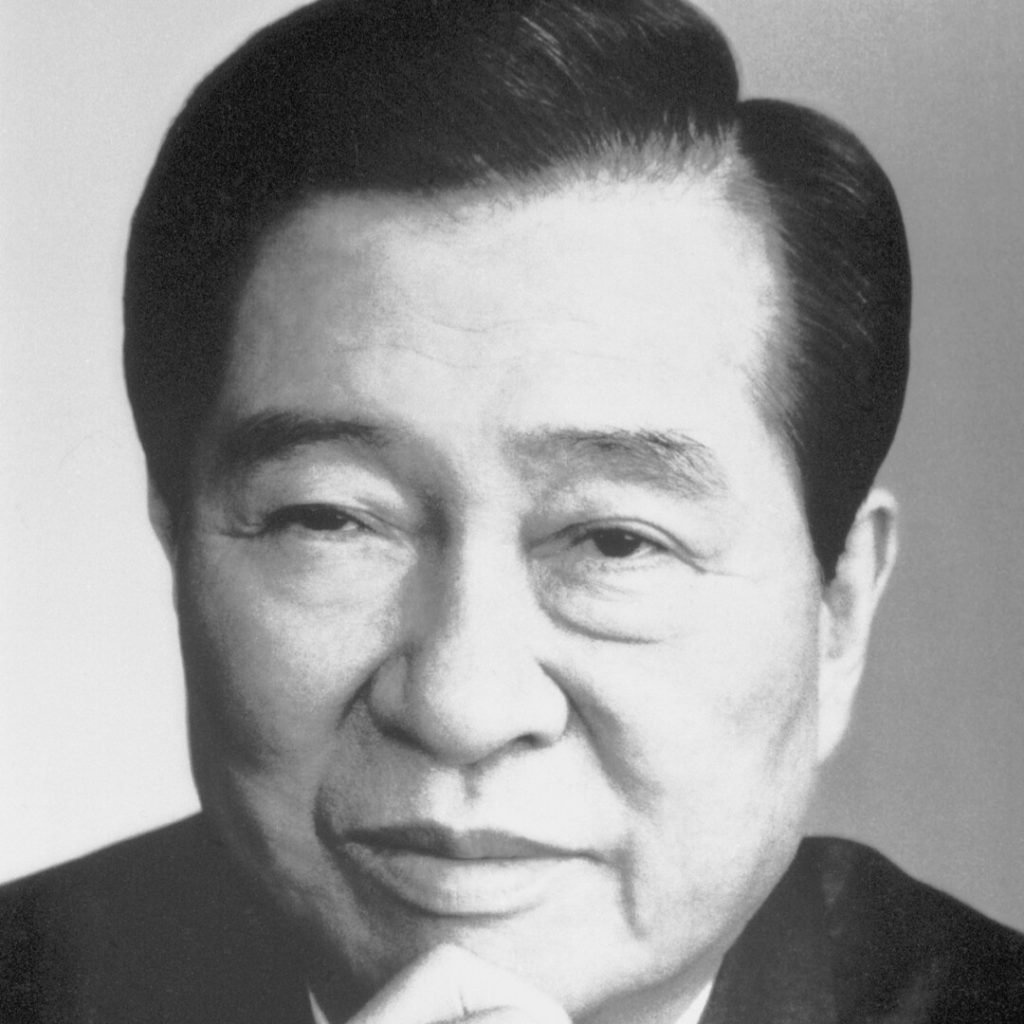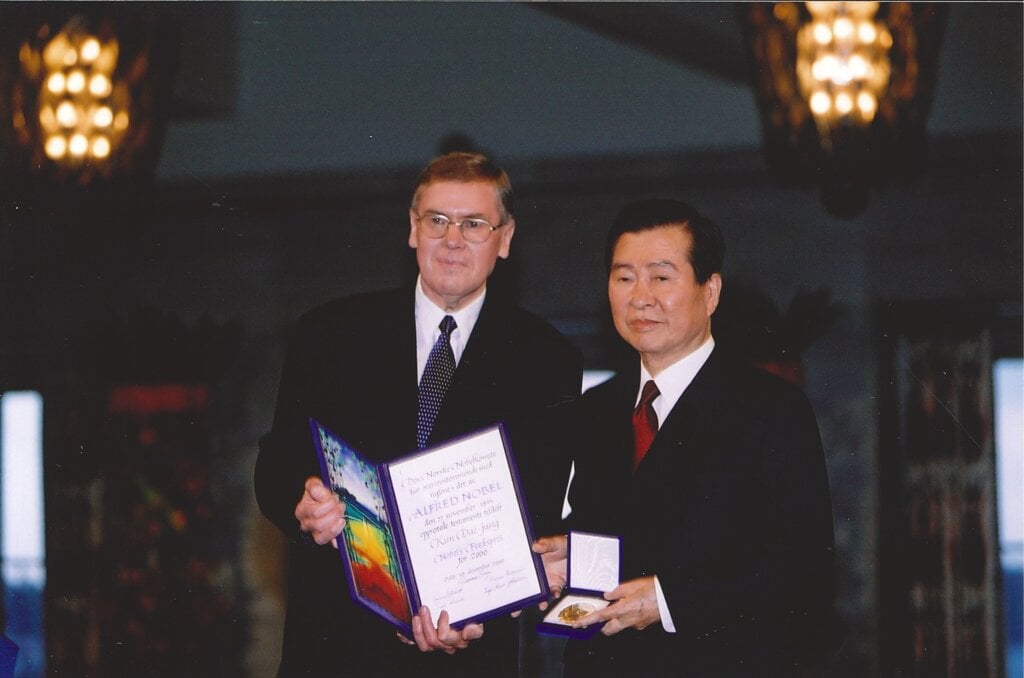Kim Dae-jung
Speed read
Kim Dae-jung was awarded the Nobel Peace Prize for his work for democracy and human rights in South Korea and in East Asia in general, and for peace and reconciliation with North Korea in particular.

Full name: Kim Dae-jung
Born: 3 December 1925, Mokpo, Korea (now South Korea)
Died: 18 August 2009
Date awarded: 13 October 2000
The “sunshine politician”
In 2000, President of South Korea Kim Dae-jung received the Nobel Peace Prize for his “sunshine policy” vis-à-vis North Korea. He wanted to lay a foundation of goodwill and friendship for the peaceful reunification of the two countries, which had been in a state of war since 1950. He also was honoured for his courageous battle for democracy and human rights in his home country, for which he had endured imprisonment, house arrest, abduction and exile. In the summer of 2000, Dae-jung succeeded in arranging a summit with the leader of North Korea. As a result, family members who had been separated since the Korean War (1950-1953) were allowed to meet again. Economic, cultural and humanitarian cooperation agreements were also signed.
"I believe that democracy is the absolute value that makes for human dignity, as well as the only road to sustained economic development and social justice. […] A national economy lacking a democratic foundation is a castle built on sand."
Kim Dae-jung, Nobel Prize lecture, 10 December 2000.
| Exile To be forced to live outside one’s home country against one’s will. It is also possible to live in exile within one’s own country if one is banished by the authorities to a specific place and forbidden to leave it. |

"Kim Dae-jung's story has a lot in common with the experience of several other Peace Prize Laureates, especially Nelson Mandela and Andrei Sakharov. And with that of Mahatma Gandhi, who did not receive the prize but would have deserved it."
Gunnar Berge, Presentation speech, 10 December 2000.
When Jesus saved Kim Dae-jung
Kim Dae-jung was a devout Christian. In his Nobel Prize lecture, he recounted his abduction by South Korean agents in Japan in 1973. They took him to sea and prepared to kill him, but some friends had alerted the US Central Intelligence Agency (CIA), which rescued him at the last minute. Dae-jung described his rescue thus: “Just when they were about to throw me overboard, Jesus Christ appeared before me with such clarity. I clung to him and begged him to save me. At that very moment an airplane came down from the sky to rescue me from the moment of death.”
| CIA Central Intelligence Agency. USA’s intelligence organisation founded in 1947. Responsible for preparing background material for use in the formulation of US foreign policy. Highly influential and often controversial. In 1988 George Bush, Sr. was the first former CIA director to become US president. |
Détente between North and South Korea
The 2000 summit between the two Korean leaders led to better relations between North and South. Thanks to increased trade, South Korea became North Korea’s most important trade partner after China. It sent humanitarian aid north in the form of food, fertiliser and medication, which created trust, as did sports cooperation and further contact between separated families. However, one issue remained worrying: North Korea was unwilling to dismantle its nuclear weapons programme.
"His dream of a united, free and prosperous nation seems less distant today than ever before. But that doesn’t mean that reunification is close at hand – even when promoted by a leader who has been hailed as Asia’s Nelson Mandela."
Newsweek, 23 October 2001.
Tarnished reputation
In the so-called cash-for-summit scandal which broke in 2003, it was revealed that Kim Dae-jung’s government had transferred at least USD 150 million to North Korea to bring about the summit between the two heads of state in 2000. At the same time, a South Korean intelligence agent disclosed that his country’s president had organised a vigorous campaign to secure the Nobel Peace Prize. One of the Norwegian Nobel Committee members who supported the selection of Kim Dae-jung in 2000, Bishop Gunnar Stålsett, said later that Kim would not have been awarded the Nobel Peace Prize if the committee had known about the bribe and the secret lobbying campaign.
Learn more
President Kim Dae-jung was born on December 3, 1925 in a small village on an island of South Korea’s southwestern coast. He graduated from a commercial high school in 1943 ...
Disclaimer: Every effort has been made by the publisher to credit organisations and individuals with regard to the supply of photographs. Please notify the publishers regarding corrections.
Nobel Prizes and laureates
Six prizes were awarded for achievements that have conferred the greatest benefit to humankind. The 14 laureates' work and discoveries range from quantum tunnelling to promoting democratic rights.
See them all presented here.
